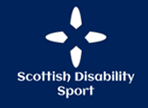FIRST AID TRAINING
All active Coaches and Leaders have a responsibility to maintain a current First Aid qualification to ensure they can look after paddlers in their care.
Finding the right training is very important especially when you consider the type of activity you undertake. It is important to find a course that includes:
- Drowning
- Hypothermia
- Hyperthermia
The majority of First Aid courses are delivered in a classroom setting and assume an ambulance is nearby; we recommend you consider courses designed to support outdoor activity. You will need to undertake a reasonable level of enquiry or investigation into how the provider will deliver the training you require.
Please note the first aid training you undertake must be:
- certificated
- practical and delivered primarily face to face
- refreshed every three years
- recorded on your membership record
Your training should meet the minimum requirements in the qualifications course guide, for example.
Coaching Qualifications Contact Time
| Qualification | Contact Time |
|---|---|
| BCAB Coach Award (Sheltered Water) | 1 Day |
| BCAB Coach Award (Moderate Water) | 2 Days |
| BCAB Coach Award (Advanced Water) | 2 Days |
| BCAB Performance Coach Award | 2 Days |
Leadership and Raft Guide Awards Contact Time
| Award | Contact Time |
|---|---|
| BCAB Bell Boat Helm | 1 Day |
| BCAB Paddlesport Leader | 1 Day |
| BCAB Paddlesport Touring Leader | 2 Days |
| BCAB Moderate Water Leader | 2 Days |
| BCAB Advanced Water Leader | 2 Days |
| BCAB Stadium Raft Guide | 2 Days |
| BCAB Raft Guide | 2 Days |
| BCAB Raft Trip Leader | 3 Days |
Mental Health First Aid
Mental Health Awareness and Mental Health First Aid training opportunities help raise awareness of mental health and support you to be able to provide great instructing, coaching and leading experiences to others - as well as supporting you to look after yourself.
Mental Health Awareness and Mental Health First Aid courses are accepted as
CPD
What is Mental Health First Aid?
Mental Health First Aid (MHFA) is a training program designed to teach individuals how to help someone who is experiencing a mental health crisis or developing a mental health condition.
As with a physical first aid course, it's all about alleviating suffering by providing immediate comfort and support, preventing the condition from developing into a more serious problem, and promoting recovery of good mental health by signposting and obtaining professional support.
Why is it important to keep your CPD up to date?
When instructing, coaching or leading, you are likely to look at your paddlers’ strengths and weaknesses, consider their aims and objectives and look at ways you can support their development. So why would we, as Instructors, Coaches, Leaders or Guides, not want to do the same for ourselves?
As part of your membership cover as an Instructor, Coach and Leader you have professional indemnity. To be entitled to have this extended cover, you need to ensure you engage in CPD, keeping you current and updated.
The goal of MHFA is to provide initial support and guide the person towards appropriate professional help. Here are the key aspects of MHFA:
Recognition: Training helps individuals recognise the signs and symptoms of mental health conditions such as depression, anxiety, psychosis, stress and substance use disorders.
Support: MHFA teaches how to offer initial support and comfort to someone in distress. This can include listening without judgement, offering reassurance, and providing information on how to seek further assistance.
Guidance: Participants learn how to encourage and assist the person in seeking professional help, self-help strategies, or other support services.
Crisis Intervention: The training includes strategies for dealing with crises such as suicidal behavior, panic attacks, acute stress reactions, and episodes of psychosis.
Empowerment: By equipping people with these skills, MHFA aims to reduce stigma around mental health issues and promote early intervention, which can lead to better outcomes.
Broad Application: MHFA is designed for a wide range of people, including friends, family members, colleagues, teachers, and community members, making it accessible to anyone interested in supporting mental health.
The training typically involves interactive sessions and exercises to build confidence and skills in responding to mental health situations. The overall aim is to create a supportive environment where people feel empowered to assist others in times of mental health crises.
Why is Mental Health First Aid important?
Mental Health First Aid (MHFA) is important for several key reasons:
Early Intervention: MHFA helps identify and address mental health issues early, preventing them from worsening and promoting quicker recovery.
Reducing Stigma: Training increases awareness and understanding, reducing the stigma associated with mental illness. This can encourage people to seek help and support.
Empowering Individuals: It equips people with skills and confidence to support those experiencing mental health problems, including recognising symptoms, providing initial help, and guiding towards professional assistance.
Crisis Management: It provides tools to manage mental health crises, preventing harm and stabilising situations until professional help arrives.
Improving Outcomes: Timely support and intervention lead to better outcomes, reducing long-term disability or chronic conditions.
Promoting Inclusivity: Training fosters a culture of empathy and support, helping individuals create more inclusive and caring environments.
What are the main courses available to me?
½ day Mental Health Awareness
1 day Mental Health First Aid
2 day Mental Health First Aid
What is typically covered in a MHFA course?
- What is First Aid for Mental Health?
- Understanding mental health conditions
- Signposting further advice
- Starting a conversation
- How to provide First Aid for people with mental health conditions (e.g. anxiety, depression, post-traumatic stress disorder, self-harm, suicide, eating disorders, personality disorders, psychosis).
What situations might paddlesport coaches be faced with?
A strong understanding of the different types of mental health conditions will support any paddlesport coach to understand those they are coaching better and be able to support paddlers more as required.
-Panic Attacks
-Anxiety or Stress
-Depressive episodes: such as withdrawal or lack of energy.
-Reactions to past trauma
-Suicidal Thoughts
-Signs of substance abuse
-Aggressive behaviour
-Isolation or withdrawal
Why is Mental Health First Aid important to Paddlesport Coaches?
A strong understanding of mental health conditions helps paddlesport coaches better understand and support their paddlers. Awareness of various conditions, their management, and crisis intervention boosts a coach's confidence in making appropriate decisions on the water. Identifying conditions and taking proper action can be life-saving. This understanding is crucial for coaching young people and adults, allowing coaches to adapt their style, avoid triggering situations and prevent negative experiences.
Have you completed Mental Health First Aid Training?
We want to record this to help us gain a wider understanding of our coaches and members and how we might be able to continue to support the organisation to be more inclusive and Mental Health Aware.
We also want to support our coaches / leaders / members and clubs who have an interest in and want to support mental health and wellbeing within paddlesports. We are really proud to see organisations such as Blue Space Highland and health boards promoting paddling as a way to support mental health and wellbeing - we need to help them source coaches with these additional qualifications.
Credentials
If you have a MHFA Certificate you can upload it to your membership portal, there are 4 credentials you will need to choose from and this will gain you CPD also.
3- yearly expiry:
2-4 hours Mental Health awareness training (5 CPD points)
1- day Mental Health First Aid (10 CPD points)
2-day Mental Health First Aid (20 CPD points)
MHFA Trainer Training (20 CPD points)









